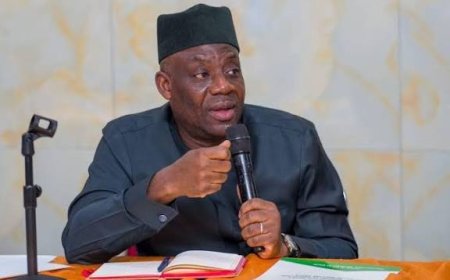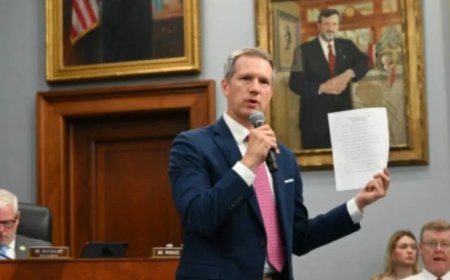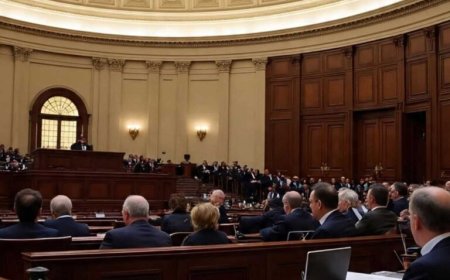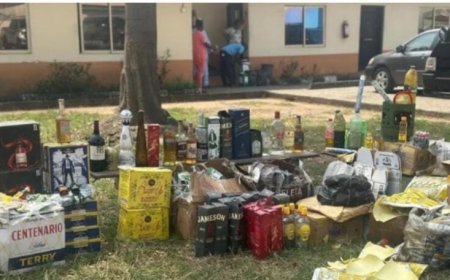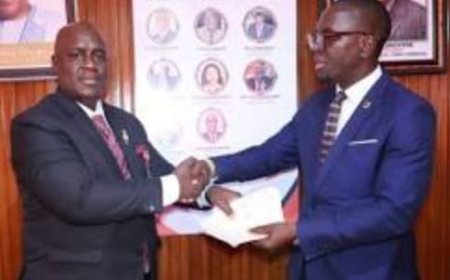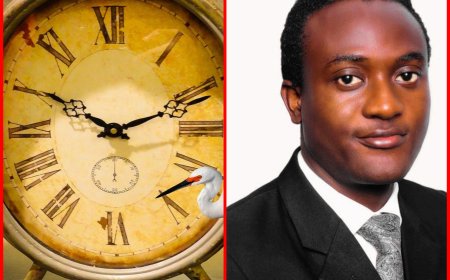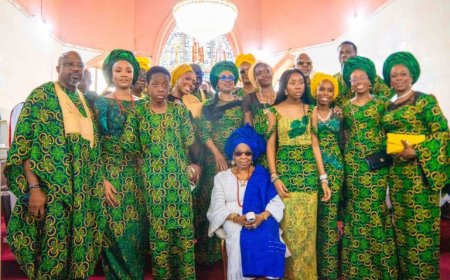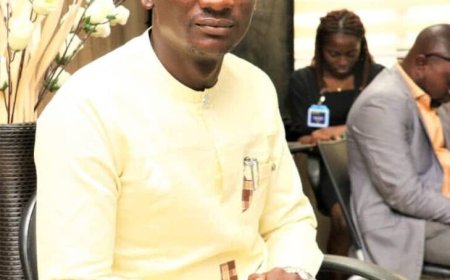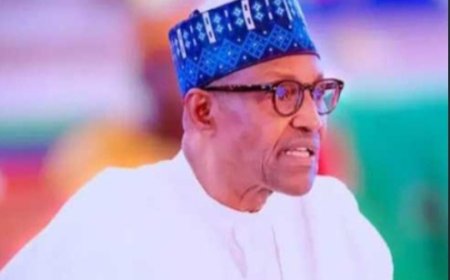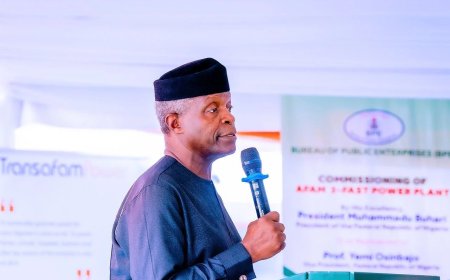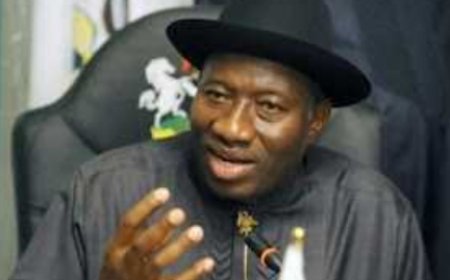Corruption: If We Miss It Under This Administration, I Pity Nigeria, Says EFCC, Urges National Assembly to Criminalise Unexplained Wealth
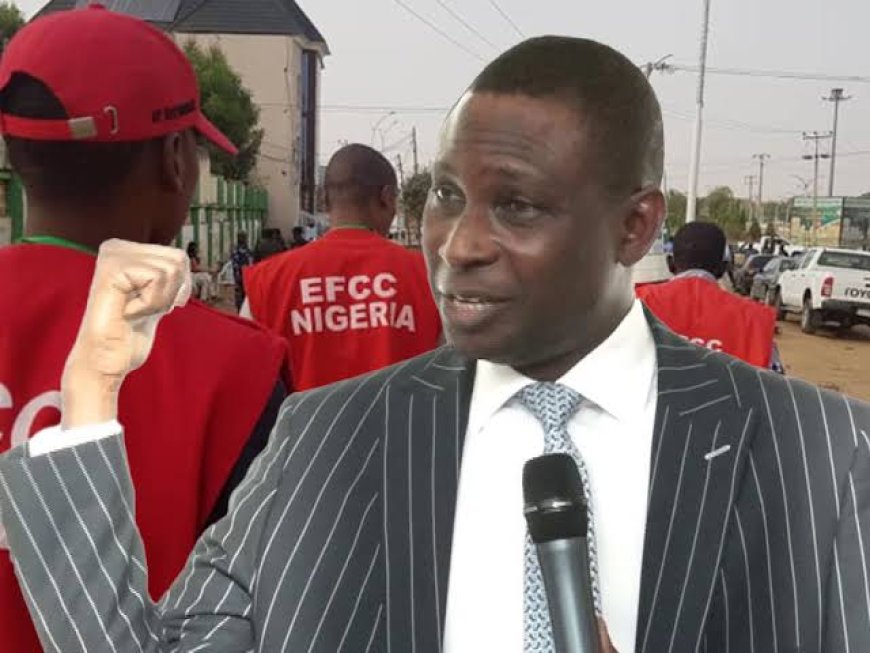
By: Israel Adeleke
OPEN TELEVISION NAIJA (OTN) News reports that the Chairman of the Economic and Financial Crimes Commission (EFCC), Ola Olukoyede, has called on the National Assembly to urgently pass legislation that criminalises unexplained wealth, warning that Nigeria cannot win the war against corruption without holding individuals accountable for assets beyond their lawful income.
OTN News further reports that the Olukoyede who said this while speaking at the National Conference on Public Accounts and Fiscal Governance organised by the Public Accounts Committees of the Senate and House of Representatives in Abuja late this week, said that the scale of corruption in the public sector is “disturbing” and deeply embedded in the system.
Olukoyede revealed that the EFCC recently began a sweeping investigation into the extractive industry, especially the oil and gas sector, describing early findings as “mind-boggling.”
“In the last three weeks, we started a commission-wide investigation into the extractive industry, particularly the oil and gas sector. What we have discovered is mind-boggling. And we have only just opened the books. So much more corruption is to be unravelled. If this is what we’re seeing at the surface, imagine what lies beneath,” he said.
He warned that unless there is legal backing to hold public officials accountable for unexplained wealth, efforts to fight corruption will continue to be frustrated.
Oloyede also made known that the agency have been begging the Assembly for years to pass the bill that will make individuals accountable for what they have, but all their efforts was to no avail.
He said, “help me pass the Unexplained Wealth Bill. I’ve been begging for the past year. This same bill was thrown out in the last Assembly. If we don’t make individuals accountable for what they have, we’ll never get it right."
“Once you are living beyond your means, you should be held to account. Until we do this, there will always be an escape route for the corrupt,” he said.
Citing a case of a civil servant with five luxury properties in highbrow Abuja neighbourhoods despite modest earnings, the EFCC boss criticised the legal requirement to prove a specific crime, known as a “predicate offence,” before assets can be seized.
He said, “Someone has worked in a ministry for 20 years. We calculate their entire salary and allowances. Then we found five properties — two in Maitama, three in Asokoro. Yet we’re told to go and prove a predicate offence before we can act. That is absurd."
He noted that the proposed legislation would make it a strict liability offence to possess wealth grossly disproportionate to legal income, with the burden of proof shifting to the individual to explain the source of such assets.
“Once you are living beyond your means, you should be held to account. Until we do this, there will always be an escape route for the corrupt,” Olukoyede said.
He also disclosed that the Commission is currently tracking illicit Nigerian assets across multiple jurisdictions, including unexpected locations like Iceland.
“Last month alone, I visited four or five countries chasing Nigeria’s stolen assets. An ambassador even told me they discovered an estate in Iceland owned by a Nigerian. Iceland of all places!” he said.
The EFCC boss admitted that no anti-graft agency, no matter how efficient, can recover more than half of what has been looted.
“There is no amount of capacity I can build, no level of effort I can put in, that will enable me to recover even half of what has been stolen from Nigeria because the custodians of those assets in foreign countries don’t want to let go. And they won’t,” he said.
Furthermore, he criticised foreign nations for enabling corruption by refusing to repatriate stolen assets and described them as complicit.
“I told them at the United Nations Forum last December that if you are holding onto Nigeria’s stolen assets, we see you as an accessory after the fact. They grumbled, but I didn’t care,” he said.
The EFCC Chairman also criticised the widespread culture of impunity in Nigeria’s public service, where those already under prosecution are often celebrated, and compliance with financial laws is flouted with impunity.
“We are doing this work. We see people who have stolen our money. We have shown you evidence. We’ve traced where the money went. We are already in court. Yet, they’re being celebrated all over the place. Does that show we’re serious?” he asked.
“How many books can you check? How many files will you read? We need strong internal compliance systems that can checkmate corruption before it begins,” he said.
The EFCC Chairman blamed the mismanagement of public funds for Nigeria’s persistent insecurity, saying that corruption fuels crimes like terrorism, banditry, and kidnapping.
“There is a very strong connection between the mismanagement of our resources and insecurity. Trace banditry, kidnapping, terrorism — you’ll find a pattern of corruption and diversion of funds meant to improve people’s lives,” he said.
Olukoyede urged lawmakers and Nigerians to look beyond politics and ethnicity to confront the country’s corruption crisis head-on.
“If we miss it under this administration, I pity Nigeria. Let’s put politics aside. Let’s put ethnicity aside. This is about rescuing the soul of Nigeria,” he said.
He emphasised that Nigeria does not need to rely on loans to survive, given its immense natural and mineral wealth, but called for transparency in revenue generation and public expenditure.
“What we need is transparency in revenue generation and accountability in public expenditure. If we can execute even 60% of our capital budget efficiently in 2025 and 2026, we will empower SMEs, build infrastructure, and transform the economy,” he said.
Olukoyede, however, urged both lawmakers and the public to brace for backlash from vested interests and social media but to remain steadfast in the fight against corruption.
What's Your Reaction?















